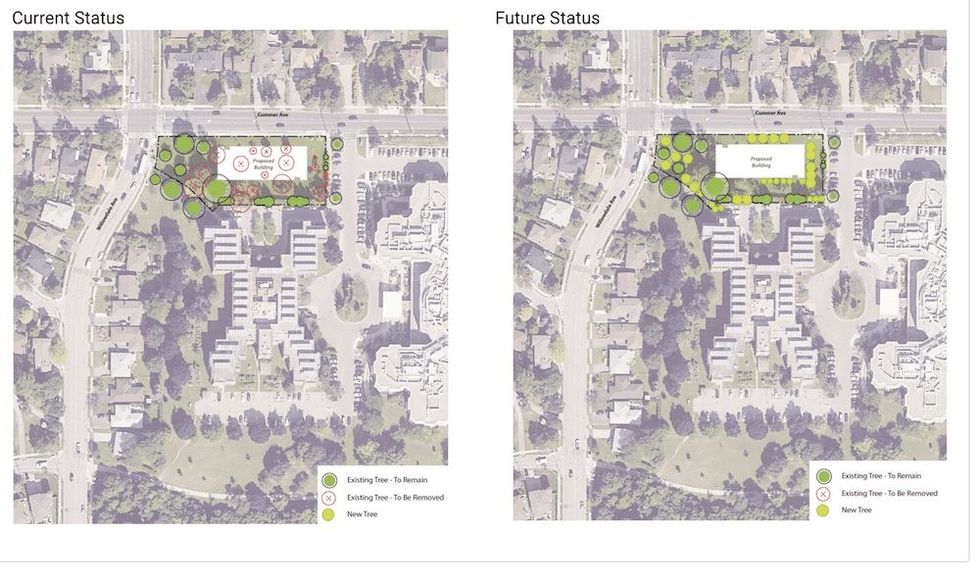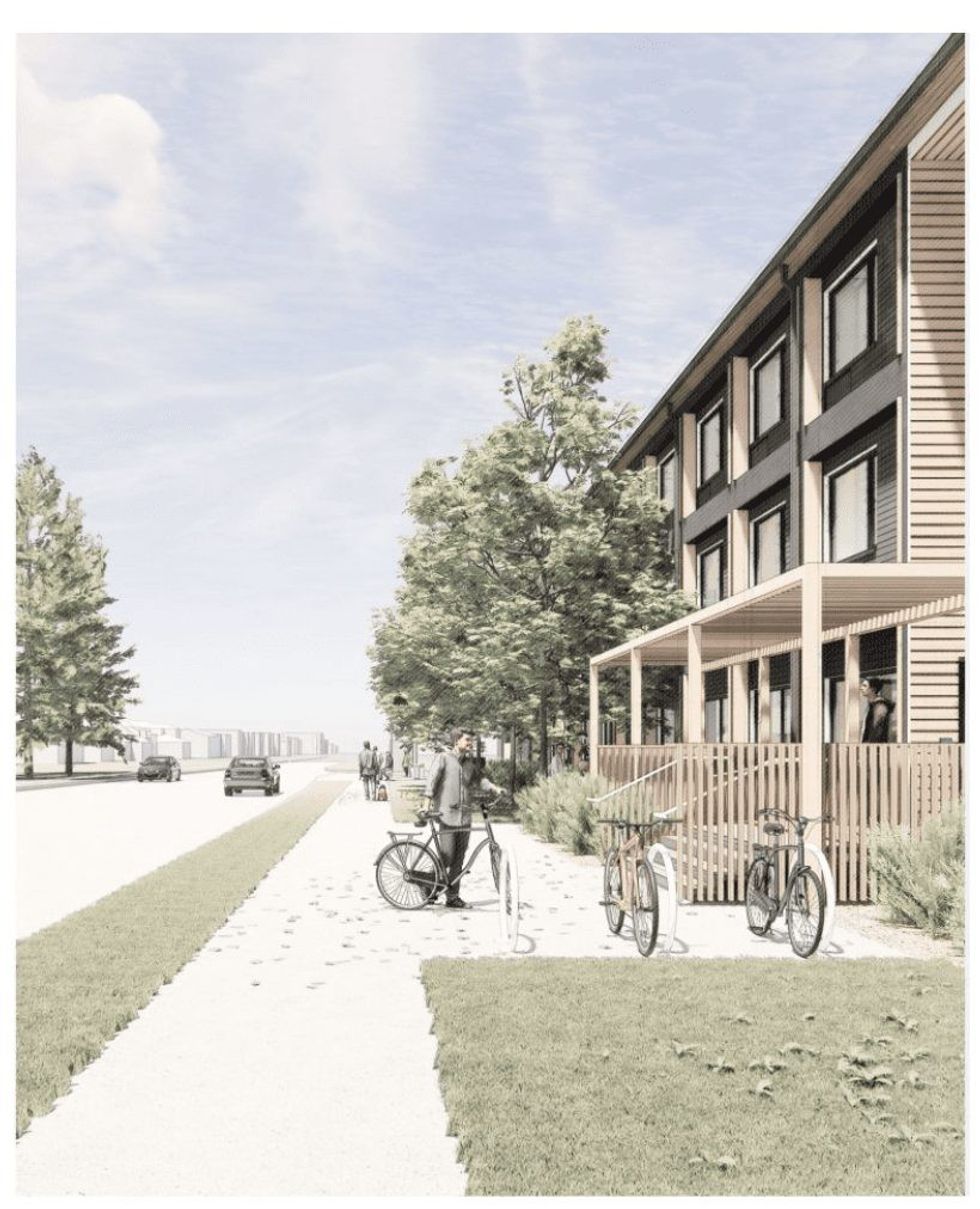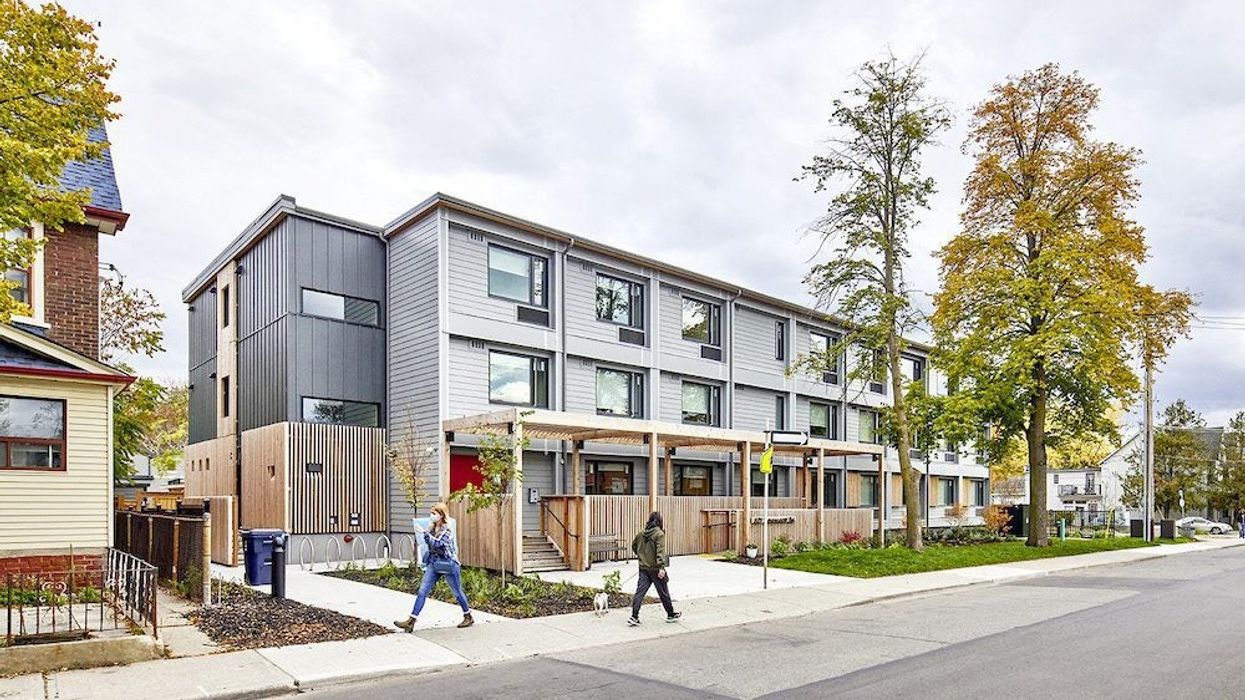Despite vocal neighbourhood pushback and inaction from the province, the City of Toronto is adamant that the new modular supportive housing development at 175 Cummer Ave. will come to fruition.
City council voted unanimously on March 9 to move forward with the Willowdale site following lack of response from provincial Housing and Municipal Affairs Minister Steve Clark, despite repeated requests made since June to fast track the project via a Minister's Zoning Order (MZO).
Instead, the city is now forced to rezone the site the traditional way, which will tack at least another year onto the process and open it up to further appeal attempts -- all while Toronto’s homelessness crisis deepens.
READ: Modular Housing Offers a Solution to Toronto’s Housing Crisis… But NIMBYs Aren’t Happy
While it’s common enough for supportive developments -- housing for individuals exiting homelessness -- to receive neighbourhood pushback, this is different from the typical NIMBY opposition, says John Filion, City Councillor for Willowdale, especially as local MPP Sam Cho has backed the cause in, what Filion says, is an attempt to grab votes. A request for comment from Mr. Cho’s office was not returned by the time of publishing.
“There’s been a very organized and orchestrated spread of misinformation. [They] in effect took over the homeowner’s association and created this impression that there was a lot of opposition,” he tells STOREYS. “And the main thing that’s different is the local MPP decided he was going to play up to that. Elsewhere, you didn’t have the MPPs get involved at all, including in the Premier’s riding.”
“They [the province] don’t even say, ‘No, we’re not going to approve it.’ They just don’t respond," he says, adding that the city is still holding out hope that an MZO is still a possibility.
"A Whole Bunch of False Narratives"
Among the community’s concerns -- under the banner organization “Voices of Willowdale” -- are the permanence of the development, as well as the fact that it will “house primarily homeless men from across Toronto.”
They also cry fowl over the removal of “almost two dozen mature trees from Willowdale Manor’s parkland”, which is not exactly accurate as the land in question is the lawn of a TCHC senior’s home, and not actually parkland. Filion says that while trees will indeed be removed from the development -- as is common practice with any construction project within the city, prior to replanting -- this is an example of the misdirection at play.
“Their opposition is based on a whole bunch of false narratives. I don’t think they’re that stupid enough that they think it’s being located at a park, but they have signs around saying, ‘Save our park’. Or they’ll say it’s not close to public transit, and it’s at the intersection of two streets, each that have a bus network a few hundred feet away from Yonge St. They’ll say things that are kind of ridiculous… but they just keep saying them.”

If it seems hypocritical that the provincial government -- which has painted itself as very pro-development -- is dragging its heels on what would be an affordable housing solution, you’d be right. In the recently released proposal from the provincially-appointed Ontario Housing Affordability Task Force, strong recommendations were made to remove the “red tape” around new housing initiatives, including weakening resident feedback and expediting the appeals process - precisely the issues at play with the Willowdale project.
The rub here, says Filion, is it’s the wrong kind of development.
“There’s no developer involved here,” he says. “They’re pro development because they like to help developers. There’s no developer making a profit off this one, none of their buddies are getting rich off this one.”
The modular housing will be built by NRB Modular Solutions, who won the contract from the City in an RFP process.
The development will bring 59 studio apartment units within a three-storey complex to the neighbourhood, as well as proposed mental health, addiction, and social community supports. A local non-profit housing provider will manage the building and provide support services to the tenants under an agreement with the City.

It’s one of two sites (the other, at Trenton and Cedarvale Avenues in East York is also the subject of community-led controversy) currently underway as part of the second phase of the city’s Modular Housing Initiative (MHI), put in place in March 2020.
The MHI’s goal is to alleviate the growing homelessness crisis by utilizing city-owned and controlled lands as well as modular housing solutions, which are a faster and less expensive alternative to traditional development. The city has been allocated $203.3M for the modular housing project as part of the federal government’s Rapid Housing Initiative, and has a mandate to a minimum of 540 permanent, affordable homes, some of which will be modular.
Additional funds have been requested from the province for support services and housing subsidies as well as additional provincial investment for community agencies to support mental health, addiction, and other health services.
“Modular housing provides a unique opportunity to respond rapidly to Toronto’s urgent homelessness situation, while also reducing pressure on the City’s shelter system,” states the City of Toronto’s website. Indeed, the first sites completed under the MHI -- at 11 Macey Avenue and 321 Dovercourt Rd. -- were completed within nine months, and now provide 100 affordable homes for individuals experiencing homelessness.





















